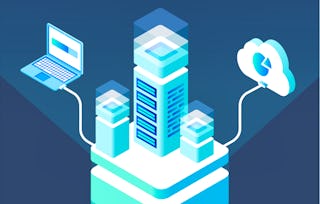Welcome to the Cloud Computing Applications course, the first part of a two-course series designed to give you a comprehensive view on the world of Cloud Computing and Big Data!
In this first course we cover a multitude of technologies that comprise the modern concept of cloud computing. Cloud computing is an information technology revolution that has just started to impact many enterprise computing systems in major ways, and it will change the face of computing in the years to come. We start the first week by introducing some major concepts in cloud computing, the economics foundations of it and we introduce the concept of big data. We also cover the concept of software defined architectures, and how virtualization results in cloud infrastructure and how cloud service providers organize their offerings. In week two, we cover virtualization and containers with deeper focus, including lectures on Docker, JVM and Kubernates. We finish up week two by comparing the infrastructure as a service offering by the big three: Amazon, Google and Microsoft. Week three moves to higher level of cloud offering, including platform as a service, mobile backend as a service and even serverless architectures. We also talk about some of the cloud middleware technologies that are fundamental to cloud based applications such as RPC and REST, JSON and load balancing. Week three also covers metal as a service (MaaS), where physical machines are provisioned in a cloud environment. Week four introduces higher level cloud services with special focus on cloud storage services. We introduce Hive, HDFS and Ceph as pure Big Data Storage and file systems, and move on to cloud object storage systems, virtual hard drives and virtual archival storage options. As discussion on Dropbox cloud solution wraps up week 4 and the course.
















